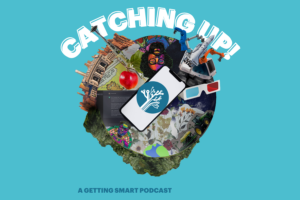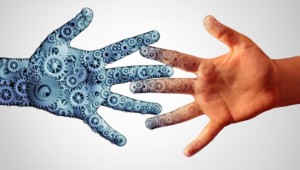You Can’t Spell Humanities Without Human

Remember working on book reports? Reading approximately 150-200 pages and praying to encounter another student’s previous annotations; anything to indicate what is important: a theme, an essential detail, anything. This level of comprehension and these sifting skills undulate and change through life, eventually manifesting in countless ways—a proclivity for storytelling, or a data interpreter.
The only thing more exhausting for a humanities major than “Oh, so you want to be a teacher?” is “Oh, so you hate math?” Turns out they aren’t that different or, rather, both courses of study can lead you to a similar career path. Learning history and social studies, reading books, writing a paper, noting sociological trends and learning a foreign language or culture are all immensely valuable exercises in teaching synthesis, a skill that with the rise of artificial intelligence (AI) and oceans of data, has become an urgent request of nearly all employers.
Many of the most in-demand jobs of the moment rely heavily upon data management: data scientist, data analyst, etc., and many thought leaders and industry alumni have been trying to identify the perfect recipe for what makes an exceptional candidate for one of these respected positions. Some of the skills needed by a data scientist include critical thinking, communication and presentation skills, all of which are heavily stressed and practiced in the varied humanities subjects and courses.
Not only do studies in the humanities provide the foundation to be an effective data manager, they also flip the script on the role of data analysis. Through having a humanities-based foundation, the role of data science becomes contribution rather than extraction—instead of simply drawing conclusions, the emphasis is put on the solution that follows said conclusions. Many people who are drawn to the humanities are attracted to the questions and themes that the subjects explore. These themes are also explored through data science; and the research, although containing different degrees of terminology, is equally rewarding.
The value add of studying the humanities has long been considered to be a development of soft skills, which have largely been difficult to measure and capture in the scope of a one-page resume. This puts some of the onus on hiring managers to identify a better way of quantifying these experiences. However, as we continue to employ automation and machine learning for more and more daily tasks, these soft skills may become a key component in what makes our human employees and relationships valuable.
As with any technological innovation, the field of AI and automation requires ethical innovations (or at least restructuring). To best accomplish this, you need someone who knows both worlds: ethics and data. Particularly in situations where AI is making high stakes decisions, like in healthcare and medicine, it is necessary to keep ethical implications front of mind. Within the field of medicine, big data can struggle to differentiate between correlation and causation and, because many of these deductions are being made in the ‘black box,’ we have low odds of untangling the mess of processing. Thinking creatively, critically and empathetically in these situations would enable better and more considered decisions and results.
A 2018 study done by the Royal Bank of Canada found that a human element in your work will help to secure your job against the rising tide of AI. Also, flexibility, ability to learn new skills, active listening and general communication skills are going to be essential in the jobs to come. I’m reminded of a chapter in a book called The Sorcerers and Their Apprentices about the MIT Media Lab that begins with the sentiment: We must humanize technology before it dehumanizes us. Never has this been more pressing and more true, and a background/passion for the humanities may be just what the doctor ordered as far as creating the necessary checks and balances to be prepared for moral and ethical implications.
The humanities appear to be consistently under threat of irrelevance, but as the tides of the workplace continue to shift, these skills that promise agility, adaptability and empathy may be essential to working in tandem with AI and the future of tech.
This is the third post in a series on Digital Discernment: a #FutureofWork Series on Teaching and Leading in the Age of AI.
For other articles in the series, see:
For more, see:
- Let’s Talk About AI Ethics; We’re On a Deadline
- Why Every High School Should Require an AI Course
- Cameras Everywhere: The Ethics of Eyes in the Sky
Stay in-the-know with innovations in learning by signing up for the weekly Smart Update.








humss courses
I like the information presented in this article. What a fantastic article! Thank you for sharing.